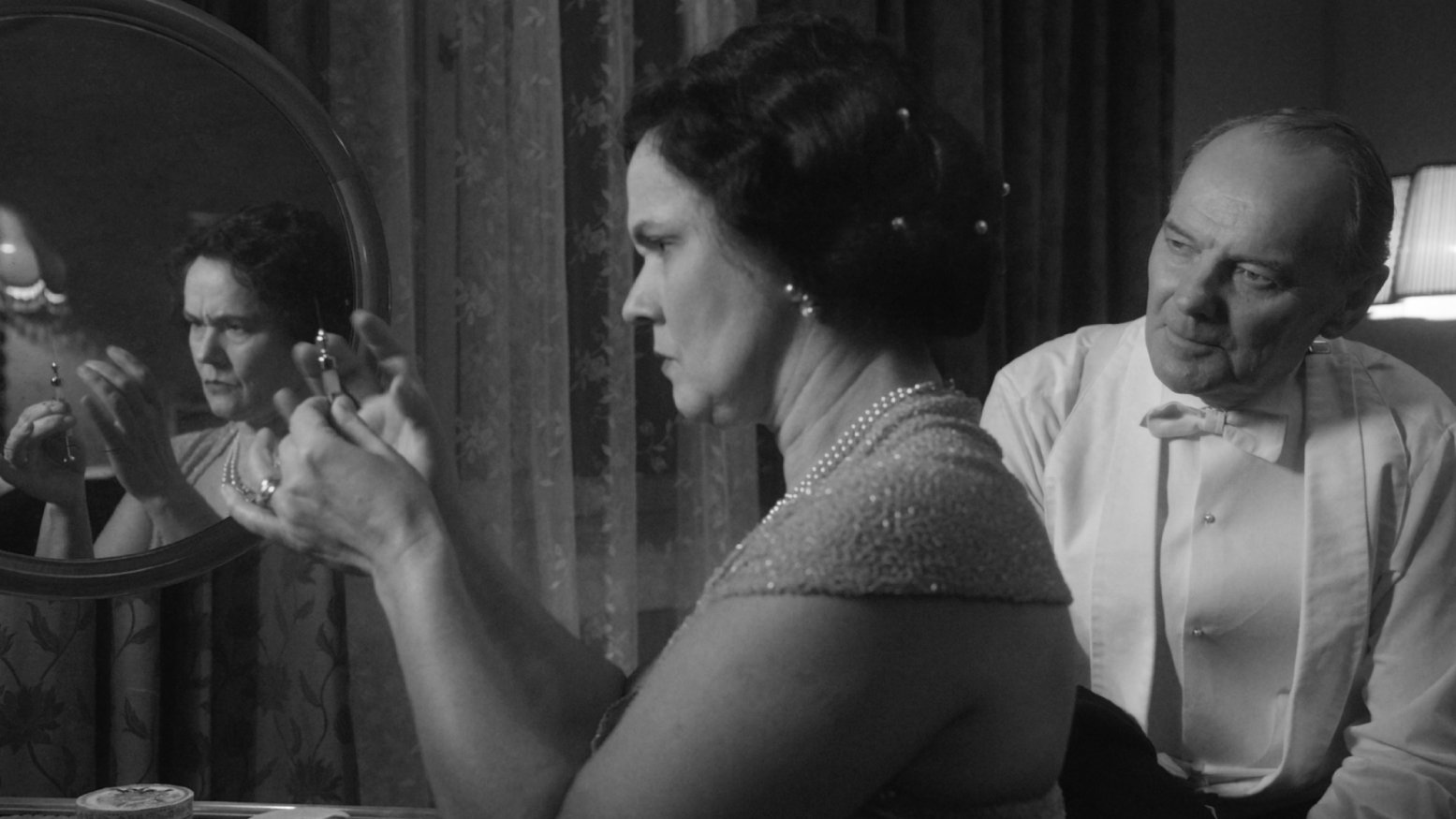Beginning with a Chagall-like image (above) of a man and woman floating in the sky, Andersson's newest, ABOUT ENDLESSNESS, is only his fourth full-length film in 20 years. None of these are what you'd call lengthy (maybe 95 or 100 minutes), and his new one lasts but 78.
Yet for TrustMovies, this one seems the longest, thanks to a certain repetition and sameness that have clearly set in to the filmmaker's work (Mr. Andersson is shown at right). Not that his situations are the same (though they are often pretty similar), but his themes -- from religion, war, commerce, communication (or the lack of it), and a populace that is at best utterly brainwashed -- remain front and center, with little new to be said about any of these.What the filmmaker has done, I think, is to pare down each of his segments more and more to what is currently coming very close to the bone. (Andersson has always been a minimalist; he's simply more so now.)
He's right, of course, in that society is certainly not changing (except for the worse), but then neither is his own vision. And since there are usually a few years inserted between his last and the debut of his latest, we're more primed for yet another chapter of Andersson-ville.
And so as About Endlessness was unspooling, I found myself, as ever, engaged with the simultaneous beauty/ugliness of it all. At the same time, my mind wandered back to his first (and still best) full-length film, Songs From the Second Floor, and how much more deeply, movingly, often shockingly, these same themes were rendered.
Well, society certainly ain't changing ('cept for the worse), so can you blame a filmmaker for staying his course? (Even treading water, Roy Andersson puts most other movie-makers to shame in so many ways.) And if we perceive an awful lot of state-sanctioned, by-rote behavior here, I can also tell you that the likes of Adolf Hitler makes an appearance, as well.
The refrain, "I saw a man..." (or sometimes a woman) occurs often here, as do forms of love and even thermodynamics. And if I can detect any really special loathing of Andersson's, it just might be toward psychotherapy and its practitioners (maybe even toward the entire medical profession).
I might suggest that it's time for Andersson to move on, but as the world appears to be arriving at its end, in its own not-so-good time, perhaps it is this filmmaker who is the best choice to help us properly embrace it all.
From Magnolia Pictures, in Swedish with English subtitles (damn few, actually; fast, snappy dialog is not Mr. Andersson's thing) and running 78 minutes, About Endlessness opens theatrically this Friday, April 30 in limited release. (It will not be challenging Godzilla and King Kong for the box-office crown.) Click here for more information on the film and its theatrical and/or digital-viewing venues.
























































